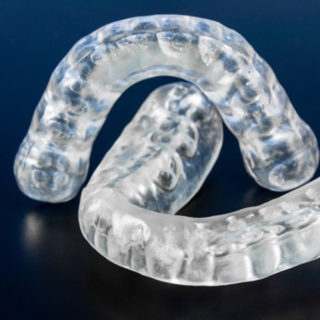 Serving Patients in the areas of Grand Rapids, Holland, and Big Rapids MI
Serving Patients in the areas of Grand Rapids, Holland, and Big Rapids MI
If you deal with daytime fatigue, have difficulty remembering things, and snore, you might have obstructive sleep apnea. These are several of the most common symptoms of this sleep-breathing disorders. But, there could be a missing link in the diagnosis of obstructive sleep apnea – a link that primary care physicians may overlook – bruxism.
Bruxism is classified as clenching or grinding your teeth while sleeping. Many people who have bruxism are completely unaware that they exhibit this disorder unless your sleep partner tells you that they keep hearing awful gnashing sounds coming from your side of the bedroom. Since many primary care physicians do not treat the mouth and body as a whole, they wouldn’t necessarily examine your teeth when assessing you for obstructive sleep apnea. Therefore, one of the most qualified types of physicians to diagnose sleep apnea is a dentist in Grand Rapids.
Our sleep apnea doctors in the Holland area can assess the condition of your teeth while looking for signs of wear, or flat chewing surfaces on your teeth –primary warning signs of bruxism. While there are other assessments that can be conducted to see if you have a sleep breathing disorder, just going to your dentist for your regular checkups could mean that we catch sleep apnea before even your primary care doctor.
Here is a deeper connection between bruxism and obstructive sleep apnea.
Swedish scientists conducted a study involving women ages 20 to 70 years old. About half of the women that participated in the study had sleep apnea to some degree, and also exhibited symptoms of bruxism. This means that sleep apnea could be present in patients who clench and grind their teeth, which is something our sleep apnea specialists in Grand Rapids can diagnose.
While older men that are overweight are generally at a higher risk of developing sleep apnea, new at-risk groups include:
- Petite women
- Children with behavioral disorders such as ADD or ADHD
- Those with a disproportionally large neck
- Those who were not breastfed as infants
- Those who suffer from anxiety or depression
- Those with bruxism
If you have bruxism or sleep apnea for that matter, both conditions should be treated in order to preserve your oral health and your overall health. Since bruxism can destroy your teeth, cause TMJ disorder and chronic headaches, the best method of treatment is prevention with a custom-made night guard that absorbs the brunt of the force from your clenching and grinding habits while you sleep.
Furthermore, leaving your obstructive sleep apnea untreated poses a greater risk to your health such as an increased risk of heart disease, stroke, and diabetes. It’s certainly nothing to mess around with!
To learn more about how we diagnose and treat sleep apnea, please contact Michigan Centre for TMJ & Sleep Disorders by calling our office at (616) 458-0631 to schedule a consultation.
Michigan Centre for TMJ & Sleep Disorders is here to serve patients in the area of Big Rapids, Grand Rapids, and Holland, MI.